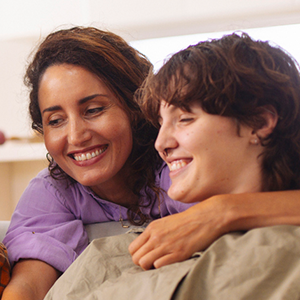Outreach: Huddle Up, Cuddle Up

he season of gratitude and gifting will most certainly look different for 2020.
The coronavirus pandemic has stretched and taxed many of us beyond our maximum thresholds and lingered so long that we have run out of coping strategies and psychic energy. People and systems are being stretched beyond comfort.
When disasters strike, there is often an immediate and heightened behavioral response, which we saw in March when the shutdowns began. COVID-19 is different from a one-time critical incident, like a natural disaster or even mass violence. COVID-19 doesn’t appear to have an end in sight.
“With COVID, the responses people are having are (marked) by the sense of isolation and uncertainty, so that’s not PTSD, it’s depression,” says Dr. Kira Mauseth, leader of the Washington State Department of Health behavioral health strike team. And almost eight months into this, hopelessness seems to have cast a blanket of malaise over the collective culture.
Experts from DHS have predicted a “disillusionment phase” in late 2020, where many struggle with what life looks like now, what the abnormal sense of normal has become. Fall is predicted to be a critical time, especially for people with mental health symptoms. There is a dynamic shifting between understanding what is and fearing what will change, as well as the overload of grief that comes from all that we have lost since March. We have lost predictability, our sense of safety, and so much more.
We know that resources are stretched: psychiatric services have long waits; counselors are mostly doing only virtual sessions which are not suitable for everyone in every situation; families are stressed in ways unlike anything they’ve seen.
There is hope, however. Access to support helps to build a sense of confidence, and confidence builds efficacy. If we can believe we have the tools to manage what comes our way, we grow our own individual and cultural sense of resilience. Mauseth points to a lot of research that shows having accurate information and simply knowing that, “Oh, hey. I’m normal,” or not alone can go a long way to increasing a person’s resiliency. In other words, we are indeed in this together!
Access to accurate data-driven information is as important as access to mental health support. Both increase hardiness, resilience. For children and teens especially, adults have to help find a way to strike a balance here. Stay focused on what you know and what they can digest. Keep efforts focused on you and your family. Build a safety bubble around your family. Huddle up and cuddle up. This acts as a buffer to stress, worry and depression.
Use traditional supports when you can gain access, but also look to non-traditional people and places to find resources and support. Fashion your very own COVID-19 cuddle group for the holiday season. Recognize that safely being with family, neighbors, friends, co-workers, or attending physically distant religious and community services are a healthy and long-term way to build your own emotional resilience and to ameliorate COVID-19 battle fatigue.
Outreach Teen & Family Services is a nonprofit, confidential counseling service. We offer programs to youth age 5 to 21, parents and families, in a welcoming, supportive environment. 412-561-5405. This column is partially underwritten by the Mt. Lebanon Police Association.





